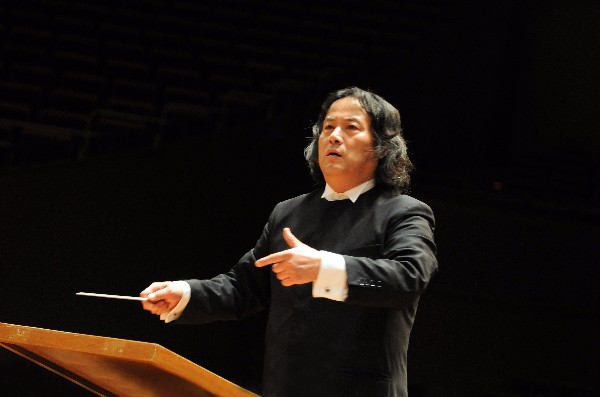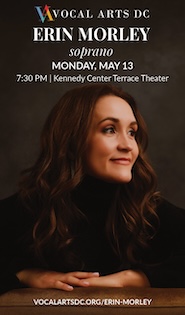Beijing Symphony offers a diverting mix at Kennedy Center

Muhai Tang conducted the Beijing Symphony Orchestra Monday night at the Kennedy Center.
Worries about China’s exertion of soft power through cultural organizations may seem quaint after recent revelations about more overt Russian meddling in American politics. Chinese cultural diplomacy includes an ongoing collaboration with the Kennedy Center on a Lunar New Year Festival marking the beginning of the Year of the Rooster. That celebration, with free performances and a family day this past weekend, culminated in a concert by the Beijing Symphony Orchestra in the Concert Hall Monday evening, led by conductor Muhai Tang.
One of several Western-style orchestras supported by the Chinese government, this ensemble was founded in 1977, in the wake of China’s Cultural Revolution and the death of Mao Zedong. Its most recent visit here was in 2013, as part of a tour across the United States. The program this time was structured much the same way, with a first half of music by Chinese composers followed by a large-scale European work, this time given a peculiar Chinese twist.
The level of playing was generally below that of the Kennedy Center’s own National Symphony Orchestra, not to mention the superior ensembles that often visit here. The string sections featured exclusively in Qigang Chen’s Eloignement sounded mostly cold and steely, and the ensemble was not always unified in the bubbling fast passages of this piece. The composer, born in Shanghai but living in France since the 1980s, expressed the feelings of loneliness in exile by quoting a Chinese folk tune.
Huang Ruo, the Chinese-born American composer of the opera Dr. Sun Yat-sen shown at Santa Fe Opera in 2014, made a new arrangement of his piece Wind Blows… for this performance. Originally made for viola and piano in 2007, this version featured oboist Liang Wang, principal of the New York Philharmonic, in the solo part. He had a rich sound in the instrument’s low register, beautifully featured in the opening section, but later in the work the tone turned pinch and sour in intonation at the top of the range. A modernist gimmick, sounds chanted by the musicians, served as the unconvincing conclusion.
The first half concluded with Nailin Yang’s “An Ode to Pear Blossom,” excerpted from Imperial Concubine of the Tang Dynasty, a hybrid combining European art song with elements of Peking opera. Xinyue Zhang, a Beijing Opera performer, took the solo part, her voice amplified in the shrill style of the genre, flourishing the long ends of her colored scarf in the faster dance sections of the piece. It seemed like a watered-down version of Peking opera, with the melodic line flattened into Western tonality and Hollywood strings alternating with traditional instruments—less convincing than the real thing, as when the Jungju Theater Company of Beijing visited the Kennedy Center in 2014.
On the second half was the most satisfying music of the evening, an unusual new arrangement of Mahler’s Das Lied von der Erde made by Cord Garben and the evening’s conductor, Muhai Tang. In this orchestral song cycle that Mahler eventually called a symphony, the composer set German translations of medieval Chinese poetry, by way of an already free translation in French. He even drew some of the sounds in the extremely colorful orchestration from his experience listening to authentic Chinese music recorded on phonograph cylinders. The idea of this arrangement was to mix in some authentic Chinese instruments to show the sounds Mahler might have had in mind.
It worked best in the opening of the second song, “Der Einsame im Herbst,” where the plaintive erhu, the two-stringed instrument played with a bow, took that lonely oboe solo in the opening passage. The bamboo flute also had effective appearances, including for the sounds of birds in the final song, “Der Abschied.” The other two Chinese instruments, the zither-like guzheng and lute-like pipa, took some of the harp parts but stood out far less.
Mezzo-soprano Huiling Zhu was the better of the two soloists, producing an intense, polished sound in the final song, in spite of conductor Muhai Tang’s too-rapid tempo. Tenor Kang Wang had the high notes, although the tone was leathery rather than heroic, and both he and Zhu were too easily swamped by the fuller parts of Mahler’s scoring.



